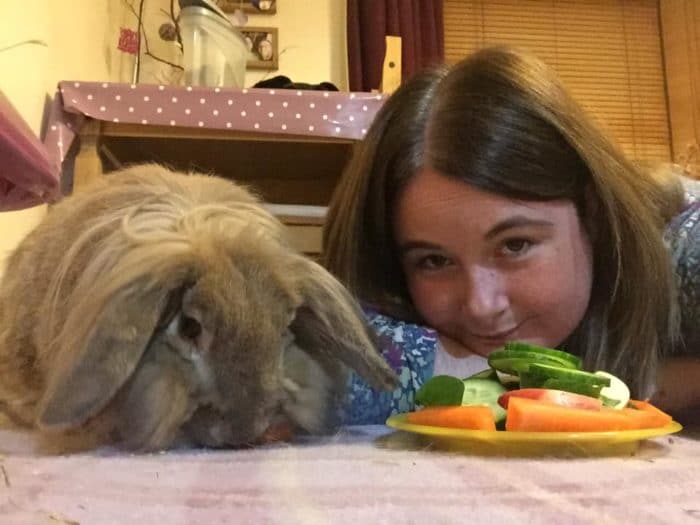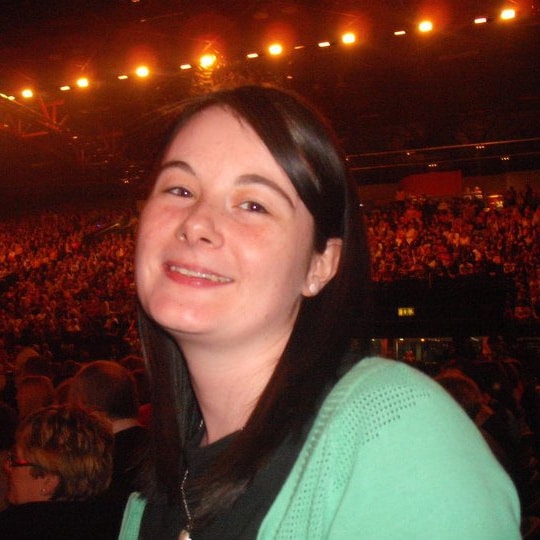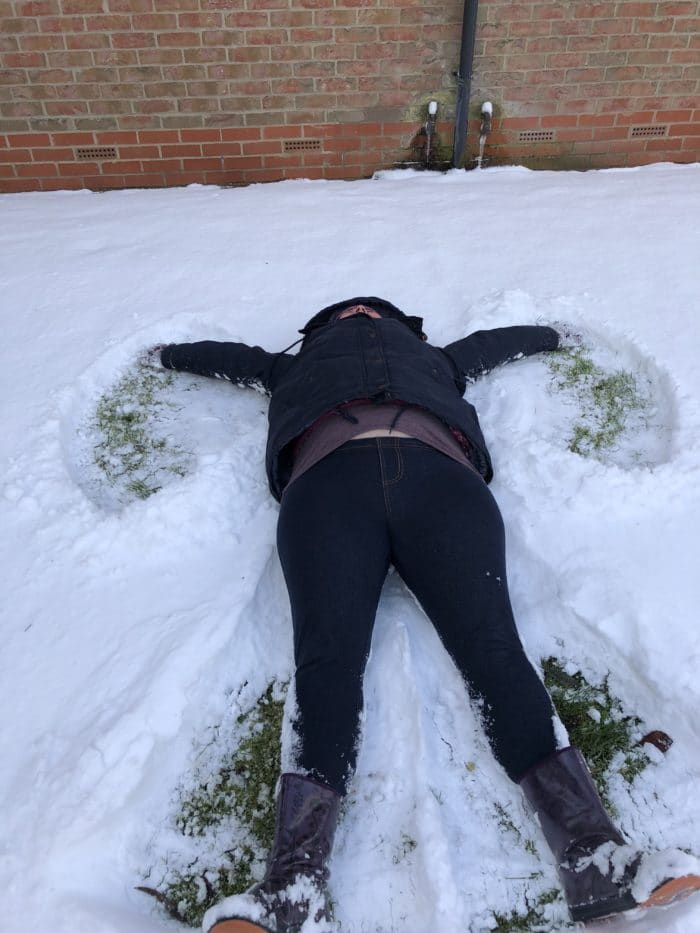
Lucy was a healthy and active teenager. A keen swimmer, member of a running club, hockey player and a volunteer for children with special educational needs, Lucy was preparing for a vibrant and exciting future.
In her final year of Sixth Form, Lucy contracted chicken pox. After a few weeks away from college, Lucy continued to pick up a number of colds and infections and exercising became more of a strain. After starting university in 2004, Lucy was diagnosed with asthma and began to suffer with extreme allergic reactions, which later resulted in another diagnosis of chronic spontaneous urticaria – a severe skin condition – and anaphylaxis. Despite her growing list of medication and increased number of hospital stays, Lucy was determined not to let it affect the life that she had loved so much.
A life in hospital
In 2008 and in her fourth and final year of her Primary Teaching degree, Lucy suffered a severe flare-up of her urticaria and spent the majority of her time in hospital – even completing a number of her assignments from her hospital bed. As a result, Lucy missed out on the final months of her university life and was unable to complete her final year’s teaching placement.
Lucy was too unwell to continue her teaching career, so when she graduated from university she began to work in IT and social media in York and she also moved into her own flat. Despite the ongoing battle she was having with her health, Lucy was determined to live an independent life.
The diagnosis
With an already weakened immune system, Lucy spent a lot of time in hospital recovering from various coughs, colds and chest infections. After a severe flare-up of urticaria, Lucy was left feeling very weak and, due to the pain in her legs, was unable to walk unaided. She was discharged from hospital with crutches and despite trying to get back into a normal routine and back to work, Lucy was placed on long-term sick leave in 2011 and has been unable to return since.
In 2011, Lucy collapsed and was re-admitted to hospital for further tests, with no energy to even stand and pain in every muscle in her body. After three and a half weeks in hospital, Lucy was formally diagnosed with Myalgic Encephalomyelitis (ME), and despite the inevitable upset that accompanied her diagnosis, Lucy was finally able to access the help that she needed so desperately.
Within a few days of her diagnosis, Lucy was assigned a social worker who carried out a detailed assessment so that she could go home with a detailed care package in place.
At 24-years-old, Lucy was wheelchair-dependent and reliant on her carers to help her remain independent.

Helping Hands
After eight years, a number of care agencies and over 200 carers later, Lucy’s experience with care so far had left her feeling nervous and hesitant about finding new providers. Having found that most of the carers that she had worked with didn’t often understand how to support younger customers, the concept of starting from scratch with an entirely new company was – quite understandably – very daunting.
In August 2017, Lucy was looking for a new care provider when she noticed that Helping Hands were opening a new office in York. After seeing how happy and friendly the team were in the branch, Lucy and her social worker approached the team for support – and they have never looked back.
Since enlisting the help of our home care in York team, Lucy is now happy and settled, and is finally able to start looking to the future to make plans to achieve her goals. Now able to retain a normal relationship with her friends and family with no dependence on them for support, Lucy’s confidence is growing by the day.
“I’ve never had a care agency where I felt important… like I wasn’t just a number or a name on a list, but Helping Hands are completely different. They care about me as a person and about all the little details in my life. They are completely invested in improving my life and have been there to celebrate my achievements, as well as helping me through some very difficult times.”
In 2018, Lucy very suddenly lost her father and was left facing the biggest ME relapse she had ever experienced. When she had to practise her speech for the funeral, go shopping for an outfit, completely change her care plan because of the hold that grief had on her condition and when she had no idea how to pick herself up again – Lucy’s carers supported her with irrevocable empathy and dignity.
Living with ME
For Lucy, every day is a constant battle. Her symptoms can change from one day to the next – sometimes hour-by-hour – and she still suffers constant fatigue, brain fog, nausea, light sensitivity and muscle, joint & nerve pain.
While in the process of learning to cope with her condition, Lucy has also been diagnosed with depression, but despite the days of “what if” and “what could have been”, Lucy continues to take each day as it comes with the invaluable support of her Helping Hands carers.
In December 2017, Lucy became an aunt for the first time and has been able to share so many special memories with her carers. From playing in the snow and making snow angels to watching a firework display from the car in her pyjamas; Lucy’s carers have become part of the family.

With the support of Helping Hands, Lucy has already made so many fantastic accomplishments and has even passed her driving test.
“On the day of my test, I went into the Helping Hands office and I have never felt so much love from a care agency. When I told them I had passed, they screamed with joy and we had the biggest group hug, and they gave me a card and a cake that they’d already bought because they had so much faith in me. This was when I knew that Helping Hands were nothing like I have ever experienced before.”
Advice to Others
When you’re living with ME, it’s important to remember that each person is affected differently with different limitations and capabilities.
If there is anything that Lucy’s journey as taught her, it is to remember that each person living with ME is at a unique stage in their journey.
Be kind to yourself on the days when all you can do is rest, set small goals to work towards bigger things, find joy in the smaller things in life and, most importantly, don’t give up hope.

Help us support ME Research UK
On July 5 our content writer, Lauren, will be climbing Ben Nevis, Scafell Pike and Snowdon in 24 hours in aid of ME Research.
ME affects approximately 250,000 people living in the UK and 17 million people worldwide – and is still without a cure.
To support Lauren’s challenge and make a contribution to ME Research so that we can help to support those living with ME, please visit the “Peaky Climbers” JustGiving page:
